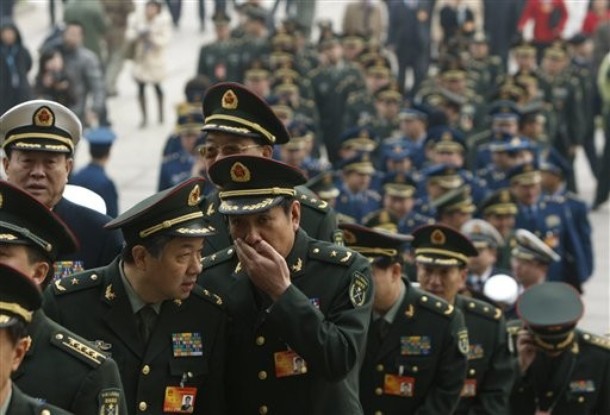Hugh White's Power Shift essay sparks a debate in Australia.

Hugh White's essay on the emerging great power competition between the U.S. and China and what role Australia should play is making quite an impact in wonkish Australian circles. It's been little remarked on in the U.S. as far as I can tell, no doubt thanks to the preoccupation with Afghanistan and Iran, but it's a debate worth following closely. It's a foreshadow of the more urgent strategic debate slowing gaining ground in the United States - to wit: whether to "accommodate" China or attempt to contain and contest her rise.
Australia's position is unique, obviously. They cannot choose containment if no one else does, but Australia could undermine any potential American containment regime by unilaterally choosing accommodation. Australia, as White documents, is in a tough spot and has been ill-served by leaders who have refused to wrestle with the strategic implications of a rising China and the potential for a U.S.-China clash.
Crispin Rovere provides a good overview of the strategic debate in Australia:
It is good to remind ourselves of what the underlying beliefs were when the 'hedging' strategy was formed. These have underpinned it to the present day. The prevailing assumption being that, as China became richer, several things would occur: (a) An educated middle class would emerge, free from subsistence concerns, demanding greater political freedom and precipitate liberal democratic reforms; (b) China, after realising the benefits of export-driven growth, would see little reason to rock the boat, and gratefully integrate itself into the American led international order, just as Japan did after its post-war reconstruction; and (c) eventually one-party rule would cause stagnation in the Chinese economy, just as it had done in the Soviet Union. Ultimately the Chinese elite would see the Washington Consensus as the only viable model for a successful capitalist system, with the government removing itself from the affairs of the private sector.As of 2010, none of these things have happened. On the contrary, as the Chinese are becoming richer they are becoming more nationalistic, and the Chinese Communist Party's legitimacy is now reliant upon, rather than subverted by, sustained economic growth. China is integrating into the US-led order only in as much as it serves its perceived interest, but is taking an increasingly assertive line as their power grows. [emphasis mine]
I wonder if China's reliance on economic growth isn't much the same thing as being subverted by it. In an important sense, the Communist Party's legitimacy is now tied to the economic prosperity of its people in a way that it simply wasn't before. To the extent that China needs good relations with America and its Asian trading partners to sustain its economic growth, wouldn't the Communist leadership remain wary about upsetting the applecart?
The question, and worry, is what happens if China's economic growth unexpectedly sputters. Will the Communist party seek legitimacy in nationalism and external conflicts? Or will it dabble with political liberalization in the hopes of reviving its economic fortunes and staving off internal unrest?
(AP Photo)



